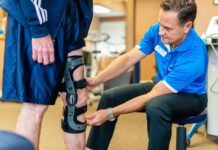The journey from a Certified Nursing Assistant (CNA) to a Licensed Practical Nurse (LPN) in New Haven, CT, is a promising path for individuals looking to advance their careers in healthcare. This transition is supported by numerous educational programs that cater specifically to the evolving needs of the healthcare industry. This article explores the key steps involved, highlighting the significance of CNA courses in New Haven, CT, and Phlebotomy classes in New Haven, CT.
Understanding the Role of a CNA in New Haven
A CNA in New Haven provides critical support to nursing staff, ensuring that patient care is timely and effective. Their duties range from monitoring vital signs and assisting with daily activities to providing important emotional support to patients. The role demands not only a strong foundation in basic nursing skills but also a profound sense of compassion and resilience. The first step towards this career usually begins with enrolling in a state-approved CNA course.
Starting with CNA Courses in New Haven, CT
For those aspiring to enter the healthcare field in New Haven, starting as a CNA is an excellent stepping stone. CNA Courses New Haven CT, are designed to equip students with the necessary skills and knowledge to perform their duties proficiently. These courses cover essential topics such as patient hygiene, basic medical procedures, and legal aspects of patient care. Successful completion of a CNA program not only prepares students for the state certification exam but also lays the groundwork for further nursing education.
The Importance of Additional Certifications: Phlebotomy
While working as a CNA, many choose to enhance their skills and employability by taking Phlebotomy Classes New Haven CT. Phlebotomy, the practice of drawing blood, is a critical skill in medical diagnostics. Gaining proficiency in phlebotomy can significantly enhance a CNA’s skill set, making them more versatile and increasing their value in healthcare settings. These classes focus on teaching the safe and hygienic collection of blood samples, handling and transportation of specimens, and patient interaction during the procedure.
Transitioning from CNA to LPN: The Educational Pathway
After gaining experience and additional certifications like phlebotomy, many CNAs in New Haven decide to advance their careers by becoming LPNs. This transition involves more comprehensive nursing education, typically requiring one to two years of study in a practical nursing program. These programs offer in-depth training in nursing theory and practice, preparing students for a wider range of responsibilities, such as administering medications and managing patient care plans.
Practical Nursing Programs: Bridging the Gap
Practical nursing programs in New Haven are structured to bridge the gap between a CNA and an LPN. They build on the foundational knowledge gained in CNA courses, expanding into more complex areas of patient care. The curriculum not only covers advanced medical and technical skills but also emphasizes critical thinking and patient communication. Graduates of these programs are well-prepared to take the NCLEX-PN—the official exam for becoming a Licensed Practical Nurse.
Career Opportunities and Advancement
With the LPN certification, former CNAs can access better employment opportunities, higher salaries, and more challenging roles within healthcare. LPNs in New Haven are employed in diverse settings such as hospitals, long-term care facilities, private clinics, and home healthcare services. This certification opens doors to further educational and professional advancement, potentially leading to roles such as Registered Nurses (RN) or even nurse practitioners, given further education.
Conclusion
For those starting as CNAs in New Haven, CT, the educational path to becoming an LPN is robust and rewarding. Through dedicated CNA courses in New Haven, CT, and specialized training like Phlebotomy classes in New Haven, CT, aspiring nurses are well-prepared to advance their careers. Each step on this path not only enhances their skills but also broadens their opportunities in the healthcare system. For more information on courses and career guidance in this field, visit northeastmedicalinstitute.com.




